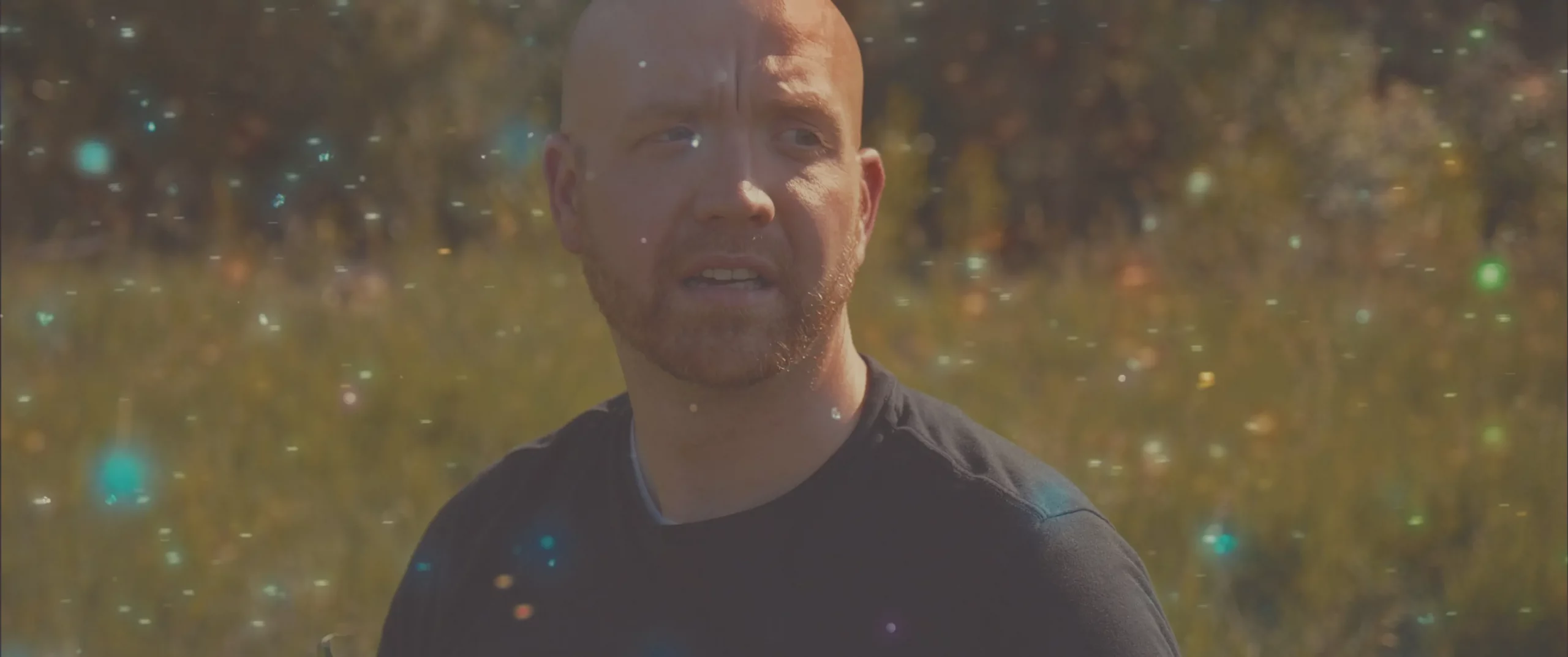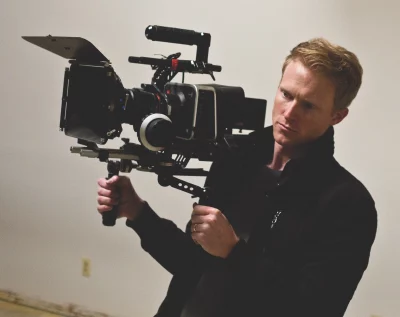
Film as a Family Legacy: An Interview with C.S. Bradshaw
Film Interviews
“I had a crazy introduction to film, even though I grew up in a pretty conservative LDS home,” says C.S. Bradshaw, director of the locally produced horror film Chapter X. He credits this all to one man: “My grandpa would always introduce me to films that were outside of my age range,” says Bradshaw, listing films such as Braveheart, Schindler’s List, and, perhaps most pertinent, The Exorcist. After years of work in the film industry, Bradshaw has stepped into the director’s chair with his feature debut, Chapter X (available to stream on Amazon Prime).
Chapter X revolves around a man who, provided with an enigmatic journal that once belonged to his grandfather, returns to the cabin where his family was mysteriously murdered decades ago. He hopes to find answers, but the deeper he investigates, the further he strays from “reality” as we understand it, learning astral projection to speak with spirits and energies from the other side.

“I portray the cabin as being very secluded … We had a really hard time with cars, especially on the weekend.”
Production on Chapter X was not always simple, the cast and crew often had to work around many of the difficulties typical of independent filmmaking. The crew shot the film at a cabin in Midway that Bradshaw’s family owns. “I portray the cabin as being very secluded. It is not,” he says. “We had a really hard time with cars, especially on the weekend.” The crew only had eight days to shoot the entire film, so while filming additional takes was occasionally stressful, Bradshaw felt his confidence build thanks to his committed cast.
While he had experience as an editor and colorist, Bradshaw had to develop new skills through experimentation and some helpful mentoring from friends and associates in the industry. Bradshaw ended up doing the film’s editing, color, visual effects, music and sound design. “It took four years to finish the film because there was no money, so I had to do it all myself,” he says.
“Part of the story was definitely [about] finding spirituality in another way” and “trying to try to find some kind of meaning in the universe.”
Chapter X is a deeply unique film, disarmingly so. Some audience members might find themselves confounded by the film’s surreal and dream-like quality, but to Bradshaw, the film’s unique tone provided him with a way to process his own beliefs. Although Bradshaw says that religion and spiritual belief weren’t specifically on his mind while writing the film, that influence certainly shows.
Bradshaw is no longer LDS, and with that change in faith, he began to reflect on what he truly believes. “Part of the story was definitely [about] finding spirituality in another way” and “trying to try to find some kind of meaning in the universe.” Bradshaw points specifically to the film’s opening shot, a sparkling nebula in space accompanied by a voice-of-god narration. This iconography would certainly be familiar to one with an LDS background. “I wanted to kind of start off something big that says, ‘Yes, the story is bigger.’”
“I wanted to kind of start off something big that says, ‘Yes, the story is bigger.’”
More simply, Chapter X calls back to one of Bradshaw’s original influences: his grandfather. During the process of writing the script, Bradshaw’s grandfather passed away, forever changing his outlook on the film. “What started off as kind of a cheesy horror film really turned into something very personal,” he says. Chapter X explores the stories, powers, abilities and sometimes curses that families can pass down through generations. It’s spiritual generational trauma: The beliefs of your fathers and their fathers will undoubtedly trickle down to you as well, for better or for worse. Chapter X’s grandfather character was inspired by Bradshaw’s own and is played by famed Utah actor and director Richard Dutcher. Dutcher also experienced his own journey with faith and belief, and Bradshaw considers their collaboration “surreal.”
Though he currently lives in South Carolina, Bradshaw says that his time filming in Utah has not yet come to a close. Bradshaw considers Utah “untapped” in comparison to locations like Los Angeles. “So many of my own stories or experiences have happened [in Utah.] Drawing on that for future films kind of a given.” While Bradshaw has no firm details on his next feature, he says of Utah, “I have no doubt that I’ll be back.”
Read more on the local independent filmmakers of Utah:
Josie Jane Rides the Rising Tide of Utah’s Indie Filmmakers
Utah Film Center: Providing Monthly Dialogues Within Creative Interest